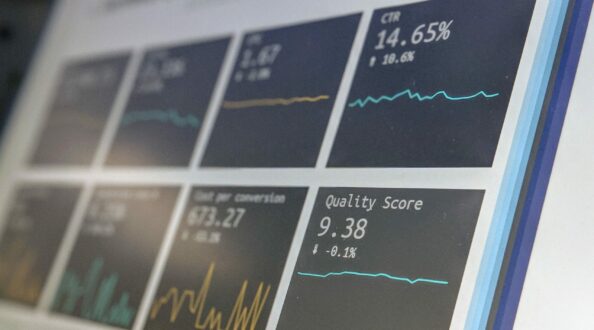
CFOs must “get comfortable with inaccuracy” to stay afloat in pandemic
Originally published by Aoife Morgan, @ FinancialDirector.co.uk – January 21, 2021
CFOs must prioritise speed over specifics as businesses are forced to make tough decisions quickly during the pandemic, according to Richard Exact, head of finance and risk at Ocado.
Speaking on a panel at this year’s CFO Virtual Agenda, Exact said the company had been forced to move fast over the past year.
“We’ve probably been through nine different scenarios within the last nine months. Then there’s a new piece of news or government legislation and you need to go back and change it all,” he said.
“That really challenged CFOs to find the balance between speed and accuracy. Normally we love fifteen-page documents with tables and everything planned very precisely. By the time you’ve done all of that, the agenda has moved. Getting comfortable with that level of variability and inaccuracy will be a challenge for CFOs.”
Paul Winsor, head of customer solutions at data and analytics consultancy Sempre Analytics said that Ocado are far from alone in the challenges they have faced during the pandemic.
“What’s happened this year has changed businesses dramatically … [some organisations] who have lost their customers overnight [and] lost their ability to operate as they were. They must adjust their business dramatically. If they’re a retail business they suddenly don’t have footfall and must attract people to their online business, if they have an online business at all,” he said.
This has enhanced the need for scenario planning. “Although scenario planning has been around for many years, what’s happened is a lot of people are having to make very different tough decisions, so planning is absolutely critical.”
The pandemic has been especially trying for many in the retail sector as companies have had to boost their digital presence in order to meet a surge in demand during lockdown. For instance, Ocado Group reported that the online grocers had a 27 percent increase in sales in the first half of 2020, and revealed it had a waiting list of over one million for its online grocery service.
Having the tools and capabilities to increase scenario planning efforts is vital, according to Exact. “A lot of this is about understanding the risks, and deciding what you can live with, and what you need to counteract. Having the capability to say, ‘if this happens, what will this mean for my business?’ is strong. We know that businesses who have scenario planning are much more likely to adapt to change than those who don’t.”
Alongside gaining the right tools and resources for business transformation, there must be a change in mindset too.
Joanna Cheres, global head of finance at Creative-Ceutical, said “in my last business we didn’t always have the money to invest [in new tools]. Now, in life sciences, we have the resources but the challenge is trying to convince people to join you on this journey”.
“Pharmaceutical companies used to have strong numbers on drug marketing and data markets, but all of that has been shattered by the coronavirus. Using productive analysis has been really useful for us for scenario planning and to give us a clearer view of the future” Cheres continued.
Winsor said the pandemic has shown how advanced technology has become critical to delivering business insights allowing the workforce to collaborate remotely.
“If you’re going to have something like [the pandemic] happen, at least it’s happening now and not five years ago. At least we now have the digital capabilities to deal with it. The nature of work is changing, and the speed of that change has increased.”
This is dependent on making sure that you have the right technology to allow you to be as collaborative as possible, Winsor said.
“You can only operate effectively if you have that layer of technology that allows you to connect what it is you’re working on. If you don’t have that, you’ve got people working in silos, being left out of decision making, but I’d say in the organisations we’re working with have the right capabilities.”
The panel also discussed whether remote working technology had helped or hindered the CFO’s ability to collaborate within their organisations.
With many offices in the country yet to reopen, the changes in working patterns brought on by the pandemic may become permanent for many organisations. A survey by Gartner in April 2020 revealed that 74 percent of CFOs planned to move five percent to permanently remote positions after the crisis had passed.
However, a lack of spontaneous, face to face interaction could mean that businesses lose out on ideas, said Exact.
“A big part of the CFO’s role is about the partnering side and being close to colleagues across the rest of the business. It is difficult to do some of that without being at a centre.”
“We need to look at what that center will mean in the new world, with the view that there still needs to be regular gatherings of people physically. From strategic decision making to casual water cooler chats, a lot of that is just harder to deliver remotely.”
Clive Teuten, CEO at Blue Bracken said he is confident technology will quickly improve to meet the challenges brought on by remote working: “Part of the problem we’ve had is that if you’re in a virtual meeting and half the team are on-site and the other are working from home, those who are in the office will tend to talk to each other. I think considering how quickly everything changes, in the next few years there will be a way to make remote meetings seem more collaborative and more real.”
As organisations have seen the benefits of investing in technology in supporting them through the pandemic, CFOs must keep up to date with emerging technologies in order to stay ahead.
“It’s important to think about the next big bit of technology coming along. Some are looking at augmented reality and thinking about how they can bring that into meetings, or how they bring that into product development, they are all things that are out there,” said Teuten.
“People are suddenly thinking, I can see all my photos on my phone, so why can’t I see invoices? People are naturally becoming more curious. Technology has got to the stage where people can see that it actually really works.”












